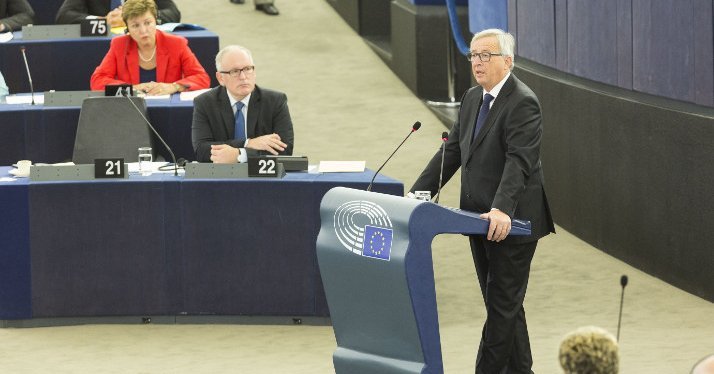In his 2015 state of the union speech, Jean Claude Juncker announced the introduction of a social pillar on equal footing with the economic dimension of the EMU. This week, one year after this public appeal, the European Commission published a communication outlining the core principles of the new social pillar.
The six-pack regulation on economic governance passed in 2011 to improve the EU´s economic convergence contained clear cut and binding indicators of macroeconomic surveillance. These include for example the 60% debt to GDP rule, arrangements for continuous monitoring and automatic sanctions in cases of non-compliance. In contrast, the initial draftof the social pillar limits itself to rather vague proclamations such as “everyone shall have timely access to good quality preventive and curative health care”. However, what constitutes “timely” and “good quality” health care remains at the discretion of national governments and no monitoring or enforcement mechanisms are defined.
All this despite the fact that the necessary concepts to introduce clear cut social indicators exist. For example, the Gini-coefficient, which measurers social equality on a scale from 0 (perfect social equality) to 1 (absolute inequality), could be used to define a threshold of, let´s say, 0,3, above which member states have to expect intensified monitoring or, if all else fails, sanctions such as fines. Political scientist Klaus Busch suggested to group EU countries into four categories, depending on the social expenditure ratio and the level of development. For these four categories of countries, fluctuation ranges of the social protection level could be fixed. Member states would be obliged to maintain the standard of their welfare provisions within this range.
Previous initiatives like the introduction of a social scoreboard into the European Semester failed to achieve meaningful impact due to their non-binding character and their narrow focus on poverty and unemployment only.
Social policy in terms of strata levelling welfare provision for the entire population is no luxury issues to be applied in times of economic splendour only. As many OECD studies have shown, too large social disparities harm the performance of any given economy. Also growing social inequalities increase crime and fuel political discontent, increasing the political appeal of extremist solutions from the radical left and right. By threatening to sweep moderate politicians out of office or actually doing so parties like Front National, FPÖ, AfD, UKIP, the Sweden Democrats or PiS in Poland make it harder and harder to achieve constructive policy solutions and endanger the EU. It is more than doubtful that the nationalist approaches these parties propose will be able to tackle large international challenges like climate change, migration, regional instability or underdevelopment. If moderate policy makers want to remain in office and preserve the EU with all its freedoms they should lift EU social policy to an equal footing with economic policies.

Follow the comments: |
|
